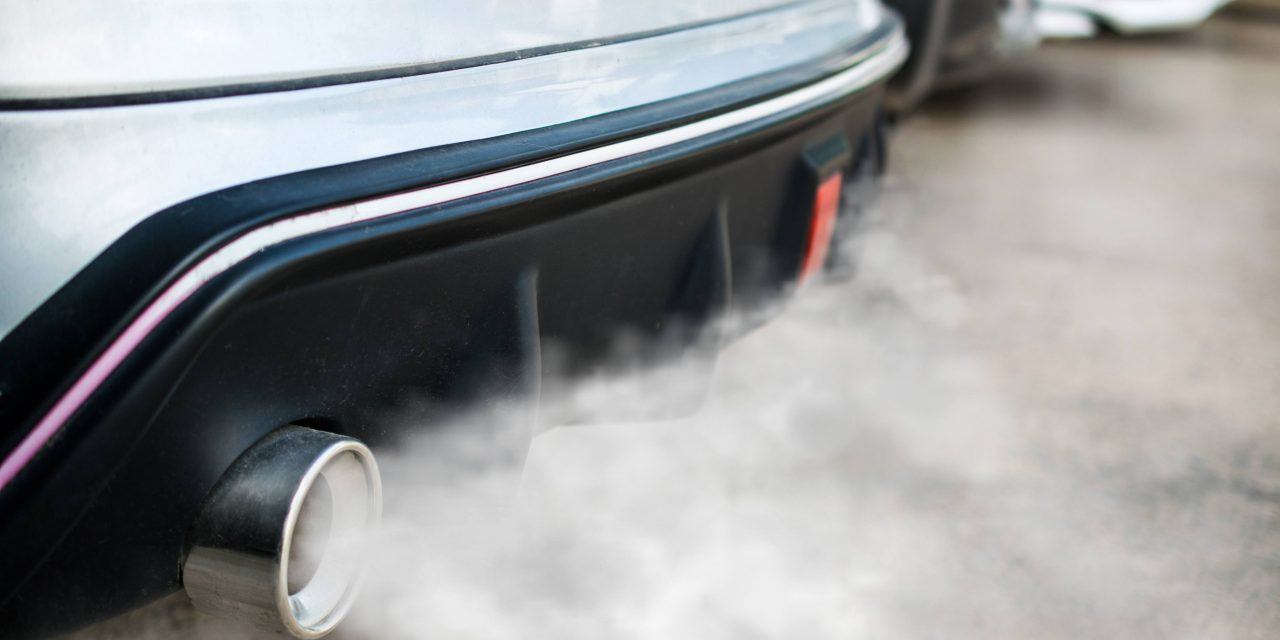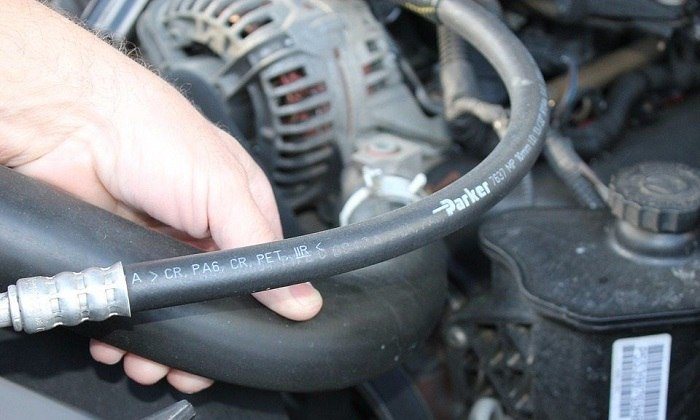by Joshua Thomas
The smell of burning rubber is one of the most common scents that many motorists will have to deal with in the normal operation of their vehicles.
In most instances, the smell will come from making heavy braking in hard and dry surfaces such as concrete and pavements as a result of the friction between the rubber tires and the surface. However, this is not the only source of the smell.
Various other things can make the car smell like burning rubber. Here we explain some of them to help ensure you know where to look when you encounter the issue, and we also show you how to best deal with the issue.
Contents

The smell of burning rubber is not the most pleasant that you can encounter in your car's cabin. Hence, when you detect it, you will want to deal with it immediately. But, to solve the issue, you first need to understand the underlying cause, and here are some of the most common ones.
If any of the hoses in your car's engine comes loose, it can easily end up in a hot part of the engine. Hence, when the engine is running and operating at high temperatures the heat that is transferred to the metal parts can end up burning the engine hose.
The burning hose is what then produces the burning rubber odor. Luckily, in many instances, the disconnected or loose hose will be manifested in the engine's overall performance almost immediately. And so in many cases, you will have noticed the loose hose long before it gets burnt.
Also, it is worth noting that not all hoses in a vehicle are made from rubber as others will be made from metal or plastic, and so when these hoses get burnt, they will produce a different smell.
A burnt clutch is a common problem for manual transmission vehicles, and it will not only make the car hard to drive but can also come with an annoying smell of burning rubber.
If the clutch keeps on slipping when changing the gears, its face will easily get burnt, which then leads to the smell of burning rubber. The surface of the clutch is often more papery, and so sometimes the smell can be more like burning newspapers than burning rubber.
Riding the clutch is the most common cause of a burnt clutch and will often occur for individuals that do not know how to use it well. Hence, if you have a manual transmission vehicle, you need to learn how to drive it well.
An electric short circuit is another common problem that many motorists will encounter. And when you have a short you are most likely to smell something burning.
Since most cables are rubber-coated for insulation and durability, an electrical short circuit can also end up causing some of the rubber insulation to get burnt and hence the burning rubber smell.
When you have a short circuit, the smell of burning rubber will be more pronounced in the cabin when driving with the windows closed and your ac is running as the air carrying the scent is directed into the vehicle.
If you suspect that you have burnt rubber insulation, you need to have the problem checked immediately because driving under such conditions can lead to more serious problems.

A motor oil leakage can also contribute to or cause the burning smell as the oil sometimes ends up hitting the hot exhaust pipe where it gets burnt.
This will mostly occur when you are driving uphill on a steep hill and the vehicle remains on the first and second gears as the exhaust pipe gets hotter than usual.
If leaking engine oil is the cause of the burning smell, you will not be able to easily detect it when inside the vehicle. However, when outside and near the exhaust pipe, the smell will be easier to distinguish.
And it is also worth noting that in many instances, high-quality synthetic oil will produce a more pronounced burning rubber smell than regular oil. Also, if too much oil is burnt, it can cause a fire, and hence the need to address the problem immediately.
For those that tend to brake very hard a lot or have a habit of riding the brakes, you are also likely to encounter the burning rubber smell.
The friction between the brake pads and discs can become too much when driving downhill that you end up producing a lot of smoke and burning rubber smell.
Occasional brake smoking is normal, and hence not a cause for alarm, but if it happens more often under normal driving conditions, it means there is a problem that needs to be addressed.
Leaving the parking or hand brakes engaged when driving is a common cause of burnt brakes, but drag as a result of a seized caliper piston is also a potential cause of the issue.
There are different vehicle components such as the water pump, alternator and the air pump that will make use of the drive belt. If any of them are locked up, the drive belt will spin but the respective components will not which cause excess friction on the belt.
This excess friction as the belt is spinning causes the generation of excess heat, and hence the production of the burning rubber smell.
And to be certain that the problem is with your drive belt, the burning rubber smell will also come with a squealing noise which is equally annoying.
In such instances, you may need to replace the faulty drive belt or components or even both depending on the extent of the problem.
The radiator coolant is vital for ensuring that the engine does not overheat when running. And while this might be obvious, what might not be very obvious is the smell of burning radiator coolant.
When regular radiator coolant is burnt, it will often produce a burning rubber smell, but the exact smell that you get will be highly dependent on the specific composition of the coolant.
The coolant is held in a small tank in the engine block which like any other tank is prone to leakage as a result of damages and faulty seals. When you have a crack in the tank due to normal wear or vibrations, it will leak out some of the engine coolants.
The leaking coolant will often encounter hot engine parts when your car is running, and when this happens, you are likely to get the burning rubber smell.
While in most instances the burning rubber smell will originate from your vehicle, sometimes it will be a result of foreign materials.
A good example of this is plastic paper or pieces getting tangled in your exhaust pipe. As the engine runs, the exhaust will get hot and burn the plastic materials, and instead of the smell of burning plastic, in many cases, you will get a burning rubber smell.
Luckily this is one of the easiest issues to fix as all you will need to do is find the tangled garbage and remove it after allowing the vehicle to cool down completely.

With the probable causes of burning rubber smell above in mind, the other important thing that you need to know is how to deal with the problem. The good news is that this is also fairly easy as you will only need to follow the simple steps below.
Before you get to solve the issue, you will first need to park the vehicle in a shaded and safe place that will be comfortable to work from. And once this is done, you should then allow it to cool down as you may need to touch parts like the exhaust and engine that often get super-hot.
The next step is to check whether there is any tangled garbage like plastic bags or rubber material in the exhaust or even under the engine.
Sometimes foreign material like plastic bags getting burnt in the vehicle is the source of the issue. Simply inspecting the vehicle and removing them when you find them is often enough to solve the issue.
If you do not have any garbage tangled in the vehicle, you should now proceed to check the engine, which is where the problem will come from in many instances.
Here you will need to check things like whether you have a damaged coolant reservoir, loose cables or burnt insulation. Also, check for electrical short circuits as they are also a common cause of the problem.
After inspecting the engine, you should now inspect the wheels and brakes to see if there are issues like seized caliper pistons that can also cause the burning rubber smell.
Also, check the tires to see whether the treading is okay because if it is uneven, it can lead to unnatural interaction with the road surface, which then increases the likelihood of excess friction when driving.
With the checks above, you should be able to identify the underlying cause of the problem. Hence, the next step will be to repair or replace the faulty components that may be causing the burning rubber smell.
Some components like loose cable only require retightening if their insulation is not melted while others like the engine oil reservoir will need a complete replacement if they are cracked. If you are not sure whether to repair or replace the problematic part, it will be wise to talk to your mechanic.
The last step when dealing with any car problem is always to check whether it is fixed or not to determine if you will need any professional help.
For the burning rubber smell, the only way to ascertain that the problem is no longer there will be to give the vehicle a test drive. A test drive allows the engine and exhaust to heat up, and so you can easily tell if the smell is there.
Also, when test driving, you will be able to feel the condition of other things like the wheels and brakes. And if there is no more burning rubber smell, the vehicle is okay.
While the smell of burning rubber might not be very pleasant to have in your vehicle, it is often very useful at helping you identify any underlying issue with your vehicle’s engine and other components.
Hence, when you notice the smell, the first step should always be to look for the cause, which can range from brunt clutch and brakes to leaking coolant and even tangled garbage in your exhaust system.
When it comes to resolving the problem, things will be more straightforward as it is all about fixing the underlying issue. And while some problems are quick and easy to fix, others will require professional intervention.
Sources
 |
 |
 |
 |

About Joshua Thomas
Joshua Thomas just simply loves cars and willing to work on them whenever there's chance... sometimes for free.
He started CarCareTotal back in 2017 from the advices of total strangers who witnessed his amazing skills in car repairs here and there.
His goal with this creation is to help car owners better learn how to maintain and repair their cars; as such, the site would cover alot of areas: troubleshooting, product recommendations, tips & tricks.
Joshua received Bachelor of Science in Mechanical Engineering at San Diego State University.
Just Car Care